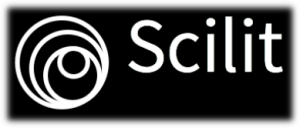Innovative Methods in Teaching Reading Skills
DOI:
https://doi.org/10.52340/zssu.2024.16.06Keywords:
augmented reality augmented teaching, analytical readingAbstract
As the world is entering a new phase of development enormous transformations are currently taking place in learning paradigms and practices. Every teacher wants to use the appropriate mix of innovative training technologies and methodologies to attract today’s students and to enhance the effectiveness of teaching. For that reason, blended learning or “Augmented Learning” has appeared. Augmented learning describes learning that „augments‟ or extends the traditional formal education, blending into it and using the new digital media based on the internet and social Media. The aim of the paper is to present augmented reality for the future blended education and to look at blogging while teaching English as a second language in Georgia. Blogging is becoming increasingly popular as a language learning tool throughout the world recently. The article gives an overview of blogging websites, suggests why you might want to use them, and gives some practical advice on setting up blogs for use with your own classes. The article also presents findings from the survey about utilizing blogs by Georgian English Language Teachers while teaching reading.
References
Anderson, N.J. (1999). Exploring Second Language Reading: Issues and Strategies. Boston:
Heinle & Heinle Publishers.
Atkinson, R. H., & Longman, D. G. (1985). Reading enhancement and development. NY: West Publishing Company.
Dubin, F. (1982). What every EFL teacher should know about reading. English Teaching Forum, 20, 14-16.
Hamra, A., & Syatriana, E. (2010) A model of teaching reading comprehension for junior and senior high school, Makassar: Makassar State University Press.
McIntosh, E. (2005). From learning logs to learning blogs. Scottish Centre for Information on Language Teaching and Research. Retrieved on September 29, 2007, from http://www.scilt.stir.ac.uk/SLR/Current%20Issue/SLR13%20McIntosh.pdf
Strevens, P. (1977). New Orientations in the Teaching of English. London: Oxford University Press.
Williams, J., & Jacobs, J. (2004). Exploring the use of blogs as learning spaces in the higher education sector. Australian Journal of Educational Technology, 20(2), 232-247. Retrieved on September 25, 2007, from http://www.jeremywilliams.net/AJETpaper.pdf
Wood, E., Motz, M., & Willoughby, T. (1998). Examining students' retrospective memories of strategy development. Journal of Educational Psychology, 90(4), 1-7.
Moralishvili S., Shevardnadze Kh., Tkeshelashvili R., Towards Critical Thinking and Its Perception in Georgia (Tbilisi Open Teaching University Case) http://journals.euser.org/index.php/ejms/article/view/4318 -12/23/2019
Moralishvili S., Akhvlediani M., Exploring Teaching Profession Challenges in Georgia
https://euser.org/icss18en/forum/thread.php?code=ED0F9593E259B4D5-12/23/2019








